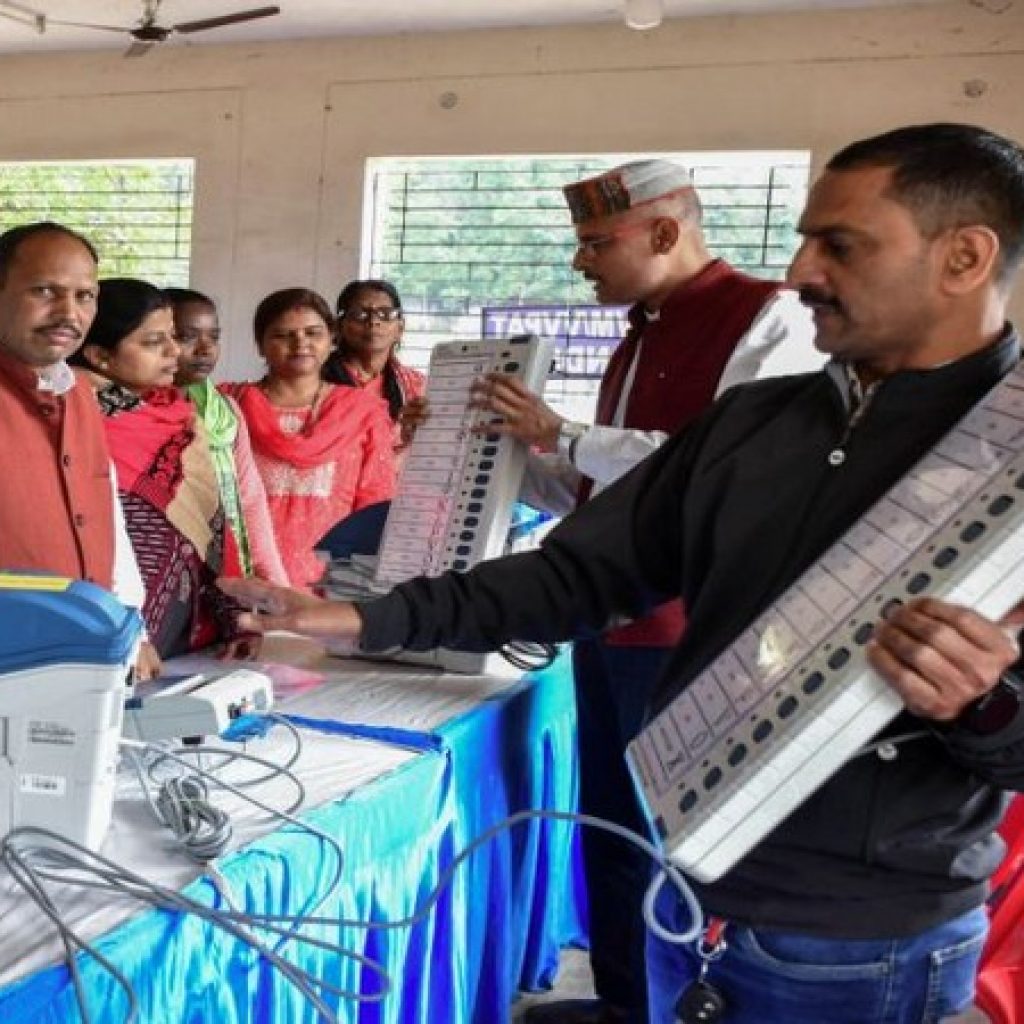BJP’s L. Murugan faces a tough battle against DMK’s A. Raja and AIADMK’s D. Lokesh Thamizh Selvan in Nilgiris Lok Sabha, Tamil Nadu…reports Asian Lite News
Union Minister of State and senior BJP leader L. Murugan is engaged in a three-cornered contest against former Union Minister and DMK leader A. Raja and AIADMK leader D. Lokesh Thamizh Selvan in the Nilgiris Lok Sabha constituency in Tamil Nadu.
The AIADMK candidate is the son of Avanashi MLA and former Speaker of Tamil Nadu Assembly, P. Dhanpal.
A. Raja, who was an accused in the 2G spectrum scam, is the sitting MP from the constituency.
The AIADMK, an alliance partner of the BJP in the 2019 Lok Sabha elections, has fielded D. Lokesh Thamizh Selvan from the seat.
Murugan, a former state BJP chief, has successfully organised several grassroots-level programmes across Tamil Nadu. A galaxy of senior national-level leaders is expected to reach the Nilgiris in the days to come for the election campaign of Murugan, which will give him a major fillip ahead of the polls.
In 2019, A. Raja defeated M. Thiyagarajan of the AIADMK by a margin of 2,05,823 votes.
The Nilgiris Lok Sabha constituency, which is an SC reserved seat, has six Assembly constituencies of which three fall under the reserved category while the rest are general seats.
The Bhavanisagar (SC) Assembly constituency is represented by AIADMK’s A. Bannari, while the Udhagamandalam seat was won by R. Ganesh of the Congress, which is a constituent of the INDIA bloc also comprising the DMK.
The Gudalur (SC) seat has an AIADMK MLA — Pon Jayaseelan — while the Coonoor seat was won by DMK’s K. Ramachandran.
The Mettupalayam and Avanashi (SC) Assembly seats are represented by A.K. Selvaraj and P. Dhanapal of the AIADMK, respectively.
Like the 2019 general elections, the AIADMK was in an alliance with the BJP for the 2021 Assembly elections as well. Though Raja won the 2019 Lok Sabha polls by a margin of 2,05,823 votes, the 2021 Assembly election results gave an advantage to the NDA of which the AIADMK was a part.
Raja told IANS, “The DMK government under M.K. Stalin has launched several welfare projects for the people of Tamil Nadu. I have a grassroots-level connection with the constituency as the sitting MP. I have full confidence in the electorate and expect a resounding victory.”
However, political observers feel that while Raja won the seat in 2009 and 2019, he lost the polls in 2014, so the constituency cannot be considered a safe bet for the former Union Minister.
P.M. Ravichandran, a political analyst based out of Coimbatore, told IANS, “The Nilgiris constituency cannot be considered a fiefdom of A. Raja. The 2014 election results were shocking for Raja, and presently four Assembly constituencies in the Nilgiris are with the AIADMK, which was then in alliance with the BJP. I think that it will be a tough three-cornered fight this time.”
AIADMK candidate Thamizh Selvan comes from a well-connected political family. His father P. Dhanpal is the sitting MLA from the Avanashi Assembly constituency, who’s also a former Speaker of the Tamil Nadu Assembly.

DMK files plea over EVMs ahead of polls
Ahead of the Lok Sabha polls, the Tamil Nadu ruling party, DMK, has filed a writ petition in the Madras High Court regarding the electronic voting machines.
DMK, in its petition to the Madras High Court, has alleged that in the electronic voting machine, a “printer between the Balloting Unit and the Control Unit, tampers with the integrity of the data that is fed to the Control Unit”.
MK Stalin’s party stated that such a connection was in direct contravention of the rules laid down in the Representation of People 1951 Act, adding that neither the 1961 Rules allow the printer to be in direct connection with the Control Unit.
DMK, in its petition, also mentioned that the procedure in case of a mismatch in Form 17C is not provided or tailed into this scheme.
“It is apprehended that the Election Commission of India is governing this aspect in a vacuum, and there is a lack of transparency regarding the same,” the petition read.
The petition also stated that “considering the complexities EVM machines possess”, such a subject matter should not be entirely left merely to the internal decision-making process of the ECI.
Earlier, the Supreme Court on Monday issued notice to the Election Commission of India and Centre on a petition seeking the counting of all Voter Verified Paper Audit Trail (VVPAT) paper slips in elections, instead of the verification of only 5 randomly selected (Electronic Voting Machines) EVMs in each assembly segment of a parliamentary constituency.
The petition filed by lawyer and activist Arun Kumar Agrawal further challenged ECI’s guideline that mandates that VVPAT verification shall be done sequentially, i.e. one after the other, causing undue delay.
The petition contended, “If simultaneous verification is done and more officers are deployed for counting in each assembly constituency, then complete VVPAT verification can be done in a matter of 5-6 hours.”
The petition filed through advocate Neha Rathi further stated that while the government has spent around Rs 5000 crores on the purchase of nearly 24 lakh VVPATs, presently VVPAT slips of only approximately 20,000 VVPATs are verified.
It sought direction that the ECI mandatorily cross-verify the count in EVMs with votes that have been verifiably ‘recorded as cast’ by the voter through the VVPATs by counting all VVPAT paper slips. (ANI)
ALSO READ: Security is no more a stand-alone function

